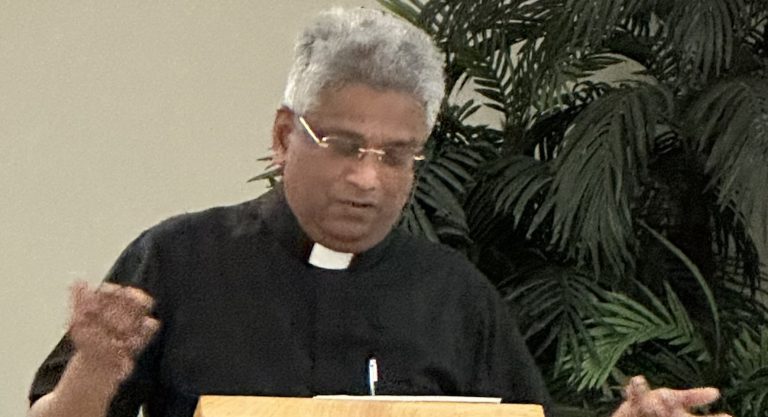ASH WEDNESDAY
First Reading • Joel 2:12-18
Psalm 51
Second Reading • 2 Corinthians 5:20-6:2
Gospel • Matthew 6:1-6, 16-18
John Newton, born in 1725, was a rebellious young man who became deeply involved in the Atlantic slave trade. Do you know him? If not look at CBW page 480. He worked on slave ships, capturing and transporting enslaved Africans in horrific conditions. He was known for his cruelty, profanity, and utter disregard for human dignity.
One night in 1748, while aboard a ship, Newton encountered a terrifying storm off the coast of Ireland. As the waves crashed and the ship nearly sank, he cried out, “Lord, have mercy on us!”
It was the first time in years that he had prayed. Miraculously, the storm calmed, and the ship survived.
That moment led Newton on a journey of repentance. He made his heart whole and studied the Bible, abandoned the slave trade, and eventually became a Christian minister. He spent the rest of his life preaching against the very industry he had once supported.
Later in life, Newton wrote a hymn reflecting on God’s mercy. That hymn is now one of the most famous Christian songs of all time:
“Amazing grace! How sweet the sound, that saved a wretch like me!
I once was lost, but now am found; was blind, but now I see.”
Sometimes we are our own worst enemies. We are constantly damaging ourselves. Despite our good intentions to change and be better, we find ourselves slipping back into old attitudes and habits. We want to do good, but we give in to the temptations to selfishness and self-indulgence.
Why are we constantly at war with ourselves? The Bible has an answer. It is because of our divided hearts.
Our hearts are torn between loving God and wanting to run away from Him. Our hearts are torn between loving our neighbor and loving ourselves.
That is why God pleads with us in today’s first reading from the Prophet Joel, “return to me with your whole heart.” God wants to take our broken, divided hearts and unite them in love of Him. If we desire nothing else than to please God in everything we say and do, then our hearts will be whole.
Our project for the Lenten season is to work at giving God our whole heart. And Jesus gives us three tools to help us do just that in today’s gospel.
They are almsgiving, prayer, and fasting. These three good works can help unite our hearts to desire what is most important – pleasing God and serving others.
The first practice is almsgiving. When we help someone in need, something very important happens within us.
We take the focus off ourselves and our needs, and turn our attention to someone else. In the process, our hearts are healed of the selfishness that keeps us bogged down in the small world of our own concerns.
The second practice is prayer. Saint Augustine defined prayer as “exercising our desire for God.” When we pray, we give our heart permission to cry out to God and express its deepest desire for friendship with Him. The more we pray, the more those broken pieces of our heart will be brought together and healed as we experience God’s unconditional love for us.
Finally, the practice of fasting is essential for healing our hearts during Lent. When we give up some food we enjoy, or go without eating for a while, it strengthens our will to choose something other than immediate gratification.
When we have an empty stomach, it slows our body and mind down, making it easier for us to be still and concentrate. In the process, our hearts are healed and made whole.
God wants nothing less from us than our whole selves – our whole hearts. There is nothing in this world that can substitute for our hearts’ desire for God. The days ahead will not be easy. There will be times when we give in and give up. But we can always start again.
Newton’s story reminds us that no one is beyond redemption.
Even the worst sinner can find mercy through sincere repentance. Just like the ashes on our foreheads remind us of our frailty, they also remind us of God’s amazing grace, which calls us to turn away from sin and embrace new life in Christ.
If we persevere, we will gather here on Easter able to give God that much more of our heart than we were able to give Him the year before.

